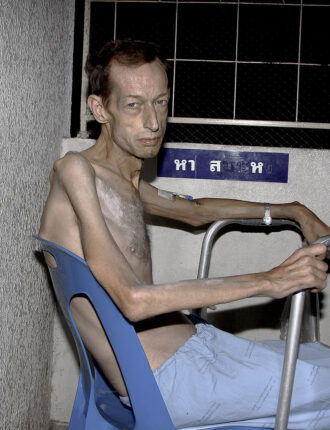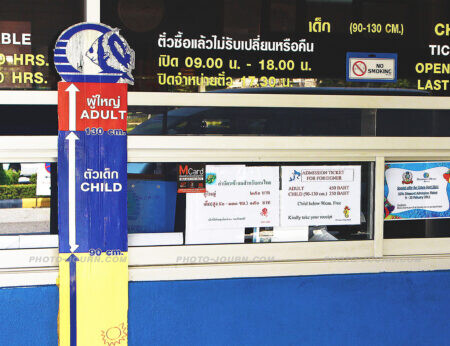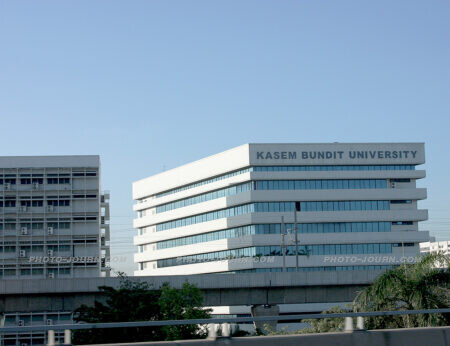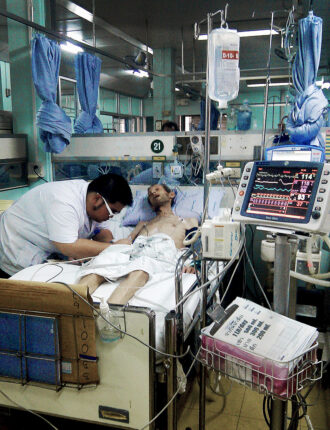The death of Leicestershire English teacher Gareth Davies is one of the most needless deaths to have occurred in Thailand in several years and in the final analysis amounts to nothing more than a betrayal in the ‘land of smiles’, as Thailand so often likes to refer to itself.
With the 2015 Asean Community (AC) rapidly approaching, Thailand desperately needs to ramp up its English language skills if it is not going be part of the flotsam left in the wake of countries such as Singapore, Malaysia, and even Indonesia, and Vietnam.
The current Thailand Government recognises the urgency needed to improve the English language skills of the Thai people and the county’s Ministry of Education, the Office of Higher Education, and Office of Private Education (Opec) are all forging ahead with various programmes to achieve this goal.
Private Bangkok English language schools such as English Click in Yanawa, one of Bangkok’s oldest English language schools, say that there is an increasing number of inquiries from people wanting to improve their English language skills ahead of 2015.
Abandoned and betrayed in Bangkok

With this rush to catch up, good, dedicated, native English-language teachers are in demand, with various countries trade missions actively promoting vacancies.
However, rather than value those who answer the call, qualified teachers (and others) often find themselves abandoned and betrayed.
Mr Davies was one such man. A man who his students describe as being “very caring”, “very patient”, and so committed that he spent money buying a laptop computer to help him with his classes instead of looking after his health and seeking treatment for the Crest Syndrome he was afflicted with.
It wasn’t just his students who thought highly of him.
In the days following his death various bulletin boards and forums saw numerous tributes posted, particularly from those he worked with in Hua Hin prior to joining Kasem Bundit University, more than a few paying tribute to his ability with a pool stick. Others described him as “very intelligent and perceptive, with a fine, dry sense of humour”, and “committed to his students”.
Survivable salary
While Mr Davies salary of Bt30,000 (about $US$887) a month is high by working-class Thai standards, it could at best be described as “just sufficient” for a single person with a fairly quiet social life and living in very modest accommodation.
In Bangkok Bt5,000 (£102 / US$169) a month doesn’t buy much of an apartment, and is typical of what two, three, or four Thai people share, comprising little more than a four meter x four meter (13 ft x 13 ft) unfurnished room with a private bathroom.
By the time utilities, transport, and meal costs are taken into account there would be little to allow for a lavish life partying in the flesh-spots of Bangkok throwing back over-priced drinks while watching naked teenage girls attempt to feign enthusiasm for their second or third stimulated sex show of the evening.
For Thai teachers the salary is even less and a large portion of Bangkok’s nine million people earn well below Bt20,000 (£408 / $648) a month, making the safety nets that are theoretically in place to supplement low wages and lower cost of living increases the country has seen in the past a vital necessity.
In many instances these same safety nets are also available to legally employed foreigners, with access to the public hospital system being one, available to tourists or anyone else who can produce an identity document.
Dual pricing rampant

Sadly many Thai goods and service providers subscribe to the old Zairian belief, that foreigners go to sleep at night and each morning wake up to a bag of money (gold) under the bed. As such dual pricing is rampant.
From the country’s national parks to tourist attractions (hint: the local Thai price is generally only displayed in Thai language so if you see a sign near the cashiers window such as in the photo on the right, you may be able to work out how much a surcharge being foreign costs you) under the false presumption that foreigners can afford it.
While Thailand watchers or expatriates on even modest foreign posting allowances might find rants about dual pricing amusing, for thousands of foreigners living and working legally for Thai employers and earning little more than mid-level Thai office staff salaries in baht, it can become a huge burden, making access to social safety nets provided for low to mid income (primarily Thai) earners a necessity.
Like many good foreign teachers in Thailand, Mr Davies built up a close (non-romantic) relationship with some of his students and it was these people who provided him with comfort and support in what turned out to be his dying days, when even his own government ignored his desperate pleas for help.
The betrayal of Gareth Paul Davies
In a series of emails provided to photo-journ’s newsblog from one of these students, it is easy to see that Gareth Paul Davies was let down and betrayed by many people, including:
- His employer, Kasem Bundit University, who deducted social fund payments from his salary but never enrolled him in the country’s Social Welfare Fund
- The medical professionals he sought treatment from and who charged him “farang” prices forcing him to postpone or cancel appointments
- The Thailand public health system
- and finally, and perhaps the most insulting of all, by representatives of Her Majesty’s Government in the guise of the British Embassy Bangkok.

Because they provide a unique insight into the life, trials and tribulations of Mr Davies and are not uncommon for English teachers in Bangkok, photo-journ’s newsblog has reproduced some of the emails exchanged between Mr Davies and one of his former students (name redacted), as well as between the student and others in attempts to help Mr Davies with his Crest Syndrome.
The Gareth Davies eMails provide a rare insight into the the life of an English teacher in Bangkok, Mr Davies commitment to his students, and also go part of the way in answering the question of why he didn’t fly home before getting so seriously ill.
It’s clear to see from the tone and tenor of these emails that low salaries, unclear terms of employment, and financial constraints plagued heavily on the mind of the Leicestershire English teacher for some time.
In a mass email to friends and former students titled “What is wrong with me?”, Mr Davies went into great detail explaining his condition, his intentions, and his reasons for staying.
It’s pretty sobering reading and provides adequate explanation why he was so well regarded by his colleges, former employers, and students.
Institutional failure

There has already been two stinging Letters to the Editor of The Nation newspaper by Burin Kantabutra, president of the Securities Analysts Associations at The Stock Exchange of Thailand and MBA alumnus of the University of Chicago, Illinois, wherein he has held back little in criticizing Kasem Bundit University (Kasem Bundhit Uni needs to be reined in) and calling for them to be prosecuted for fraud.
An equally stinging letter following Mr Davies’ death lambasted the university, the British Embassy Bangkok, and the HRH Princess Maha Chakri Sirindhorn Medical Centre in Nakhon Nayok, (Appalling treatment by hospital).
That various Thai government departments need to urgently investigate the employment arrangements and medical treatment provided to Mr Davies goes without saying.
What is equally so is that the British public should seize upon the unnecessary death of Mr Davies and demand its Foreign Office and diplomatic corps do more to protect its citizens abroad when they are in need, than simply pick up a telephone.
Other nations with significant numbers of citizens employed or living in Thailand should also demand that the Thai authorities take the firmest possible action against those who betrayed the trust Mr Davies placed in them.
Failing any guarantees that it will not happen again, foreign nations should immediately cease recruiting English teachers for the country’s schools and universities, or for any other Government to government (G2G) deals.
Feature photo John Le Fevre
Related:
- An English teacher in Bangkok — The Gareth Davies eMails
- Leicestershire English teacher Gareth Davies dead — British ambassador defends lack of intervention
- Get me out of here pleads Leicestershire English teacher
- Leicestershire English teacher abandoned by Kasem Bundit University, Bangkok
- Thailand Social Security Fund information brochure (Eng)
- Thailand Social Security Act
He has spent extensive periods of time working in Africa and throughout Southeast Asia, with stints in the Middle East, the USA, and England.
He has covered major world events including Operation Desert Shield/ Storm, the 1991 pillage in Zaire, the 1994 Rwanda genocide, the 1999 East Timor independence unrest, the 2004 Asian tsunami, and the 2009, 2010, and 2014 Bangkok political protests.
In 1995 he was a Walkley Award finalist, the highest awards in Australian journalism, for his coverage of the 1995 Zaire (now Democratic Republic of Congo) Ebola outbreak.
Most recently he was the Thailand editor/ managing editor of AEC News Today . Prior to that he was the deputy editor and Thailand and Greater Mekong Sub-region editor for The Establishment Post, predecessor of Asean Today.
In the mid-80s and early 90s he owned JLF Promotions, the largest above and below the line marketing and PR firm servicing the high-technology industry in Australia. It was sold in 1995.
Opinions and views expressed on this site are those of the author’s only. Read more at About me
Latest posts by John Le Fevre (see all)
- Kaavan’s great escape photo special (video & gallery) – November 30, 2020
- A real life fairy tale: Cambodia provides sanctuary to Kaavan, the world’s loneliest elephant (video & gallery) *updated – November 30, 2020
- Death for corruption and press freedom abused as Thailand continues Nth Korean-like slide – July 23, 2015
- Thailand’s young rice farmers boost income, slash costs with switch to organic, AWD method – May 29, 2015


This is a very sad story, my heart goes out to the friends and family of Mr Davies.
Regarding dual pricing, I have never been charged Foreign prices at any tourist attractions so long as I produce my Thai drivers license. It also helps that I can read the Thai sign and prices written in Thai. This is not to say that I won’t ever be charge for these things, just that I personally have not yet.
It is my understanding via my Thai friends that the government hospitals are not good unless you pay. I therefore understand the government hospital. I think he got the Thai style medical treatment? I does upset me that a first world country having many employed (mostly Thais) at the mans home countries embassy would refuse to help! If the US embassy did this you would be hearing about it on every national and international news syndicate! Not only is this man a British subject, but has paid taxes for the services that were not rendered?
Nice series of articles showing how hopeless the British Embassy Bangkok is at representing the interests of Britons in Thailand. Perhaps what the ambassador meant to say is that the embassy wouldn’t interfere because teaching English is seen as a major export potential and the embassy doesn’t want to upset one of the few areas that England has the potential to export something – sending more Brits to be abused by Thai educators.
Highlighted by comments at 6min 18sec in the attached VDO.
most of this page is overzealous reporting based on guesswork. the man, RIP, came to thailand and knew he was sick prior to getting a job. he assumed the local state insurance would “fix” him. yet from your dates he didnt even qualify for coverage by Jan this year under the social security act. The man made a serious and sad mistake in judgement, compounded the errors by attending private hospitals and in assuming he would get the same coverage he would from the NHS, didnt even check to see the very basic basic cover he would have been able to get from the ss here had he qualified. i doubt this post will remain here for long
Guesswork? Seems to contain lots of facts to me. Suggest you make yourself more familiar with the labor laws of Thailand and perhaps read what’s been written more closely. His work permit was issued on 17 October 2011 which meant he was entitled to full Social Welfare cover from that date – not to mention that Kasem Bundit had been deducting Social Welfare Fund contributions for months prior to that. The only mistake in judgment was the British Embassy Bangkok not getting of their bum to see what is real situation was and ensure he received the proper rights and protections as dictated by Thai law.
not so so. the medicial coverage for the Social Security Programme cuts in 3 MONTHS after the first payment. which, in his case, would have been january and not before ..I think I rewad that right before posting but am open to your correction
Not quite correct. For occupational injuries coverage is immediate. For non-occupational injuries Section 62 of the Act stipulates anyone is covered who has paid contributions for three months in the prior 15 months. Mr Davies had been employed at Kasem Bundit university for several months prior to his work permit being issued and payments had been deducted commencing with his first month’s salary.
In any event, as Mr. Davies collapsed at work on March 2, 2012, well in excess of three months after the date his work permit was issued he would have been covered by the Act in the same manner that a person who has a heart attack at work would be covered, even though the factors leading to the heart attack may have been pre-existing for some considerable time leading up to it.
Section 34. An employer who employs employees being insured persons under section 33 shall submit the statement specifying names of insured person, rate of wages and other information, in accordance with the form prescribed by the Secretary – General, to the Office within thirty days as from the date on which the employees become insured persons.
Section 54. An insured person or a person under section 73 shall be entitled to receive the following benefits from the Fund:
(1) injury or sickness benefits;
(2) maternity benefits;
(3) invalidity benefits;
(4) death benefits;
(5) child benefits;
(6) old-age benefits;
(7) unemployment benefits except for an insured person under section 39.
Section 62. An insured person shall be entitled to non – occupational injury or sickness benefits when he or she has paid contribution for a period of not less than three months during period of fifteen months before the date of receiving medical services.
Section 63. Benefits for non-occupational injury or sickness shall consist of:
(1) medical examination expense;
(2) medical treatment expense;
(3) lodging, meals and treatment expenses in hospital;
(4) medicine and medical supplied expenses;
(5) cost of ambulance or transportation for patient;
(6) other necessary expenses
Please Download: Thailand Social Security Fund information brochure (Eng) (English-language download file or read online)
or
The entire Social Security Act if you require further clarification. Thailand Social Security Act (English-language download file or read online)
Thanks for reading and commenting.
legally he was employed from the date in his work permit. he also started treatment, per his emails, in the following january. either way he was in a private hospital not a public one. RIP
Wrong again. You seem to have some great difficulty dealing with the facts of this matter. Mr Davies was legally employed from the time that he signed his employment contract with Kasem Bundit and they submitted his application for a work permit to the Ministry of Labour.
The Social Security Act makes specific provisions for treatment at any hospital – whether it be public or private – for the purpose of life saving treatment and there is a scale of payment caps applicable under the Act for people who are treated at a private hospital. Notwithstanding this, the treatment Mr Davies received in January
You’re refusing to acknowledge the fact that Kasem Bundit University deducted Social Welfare payments from Mr Davies’ first salary in 2011 up until March 14 and failed to remit these payments to the Social Security Office – a reason why Kasem Bundit University is now subject to both a police and Social Security Office investigation.
You’re also refusing to acknowledge that Mr Davies was transported to the private hospital from his place of employment on March 2, 2012, almost five months after his work permit was issued, while unconscious – hardly a matter he had any say in.
Again, I suggest you read the Social Security Act before making unfounded and unsubstantiated statements.
I googled for something a bit different, but found your blog post and i like it, so thank you very much.
Its not uncommon for universities in Thailand to treat the foreign staff differently. Although my experience was not health related, HR departments seem stretched and ill-equipped to deal with the various admin that foreign working staff may bring at times. One of the most annoying and frustrating times was the lack of guidance and support with regards to visa issues. Although the necessary paperwork was supplied I had to go to Immigration with zero support while I saw and spoke to other professionals who had all that work done for them. I suppose its possibly due to a manpower but if you would like to care for us “foreign” staff would be nice if were supported more at times. Although I have had an incredible time working in Thailand, I look forward to working in a more organised country somewhere in Europe.
Condolences to all those who are hurting from this terrible, unnecessary loss.
Strength to you all.
This is not isolated to Thailand. The main point here maybe, not even his own Country [Embassy] did anything to help one of its’ own. There is much more going on here than printed in these stories. RIP – school teacher and thank you.
I have to say, I’ve always been charged Thai price when I produce my work permit. Just my experience.
Can you give some examples please?
My experience is that producing a work permit has little affect on what prices I’m charged.
Just recently I went to Police General Hospital which introduced a Bt1,000 “farang tax” for its A&E department. Thais pay the cost of seeing the doctor and for medicine. At Police General Hospital the Bt1,000 is an “administration fee” for processing foreigners and includes neither consultation time with the doctor, treatment, or medicine.
Thanks for reading
A very sad and hard hitting story. Such a needless death.
I look forward to any outcomes of enquiries into those that should be held accountable.
This matter can not be swept under the carpet … It is a Human Rights issue.
I would encourage others to lend their full support in any way that they can.
A well written story . Such a sad, needless loss of life.
This is a Human Rights issue and I await the outcome of investigations into the death of Gareth Davies .
There are many things that are frustrating about Thailand. One of them is misinformed “Fallangs”.
If you are working in Thailand legally, with a Work Permit, you are entitled to ask to pay Thai prices for “dual price” services.
Please try and remember you are a guest in the LOS and if you want to be a long term visitor it might be advisable to learn the language (written and spoken).
“If you are working in Thailand legally, with a Work Permit, you are entitled to ask to pay Thai prices for ‚Äúdual price‚Äù services.”
Where is this a policy?
There are numerous instances including Thailand national parks where producing a valid work permit or Thailand driving licence has no affect on whether you pay farang price or Thai price. In this instance the doctors treating Mr Davies knew he was legally employed in Thailand with a valid work permit and still charged him “farang price”.
You don’t state what country you are originally from. Are foreigners, whether visitors or those employed there, charged a different price for basic services than native-born citizens?
Thanks for reading
Respect cannot be demanded . It must be earnt.
I will respect The Land of Smiles when it respects basic Human Rights.
Whether or not someone can speak Thai should have no bearing whatsoever on how they are treated as a HUMAN BEING.